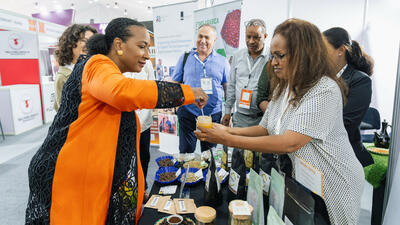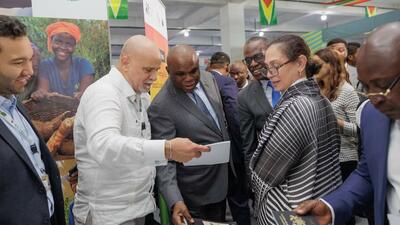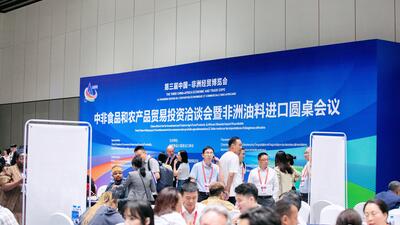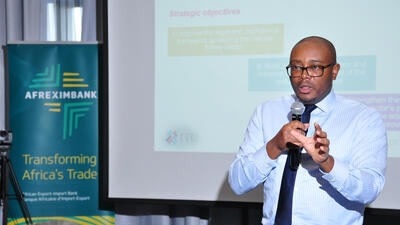Unblocking border gridlock
When looking at Aid for Trade, governments often tend to focus on infrastructure investments. But to ensure that these investments pay off and support economic integration, Aid for Trade must address policy constraints and integrate broad-based policy dialogue to build buy-in for reforms from all stakeholders.
For example, the road between Yaoundé, the capital of Cameroon, and Bamenda, the economic centre of the country’s English-speaking western region, is in excellent condition, and goods can flow easily. Although rehabilitation work is ongoing, the road from Bamenda to the border with Nigeria, and then on to Onitsha, an economic centre in the eastern part of Nigeria, is still in significantly worse shape, with a high number of checkpoints generating additional delays and costs.
As one of the main border crossings along the 1,700 km-long frontier between Nigeria and Cameroon, Mfum should be busy, and trade between the two countries thriving. Yet, bad roads and old border infrastructure limit trade. Perhaps more importantly – and this is an often overlooked issue – trade suffers because of poor policies and the equally inconsistent application of these policies in the two countries. For both countries it should be obvious that complementing infrastructure investments with important policy reforms is critical to ensuring that investments pay off and trade costs fall.
For trade crossing the border between the two countries, statutory duties and taxes are high, even compared to regional standards. For general merchandise, total statutory taxes amount to more than 50% of the value of products. This is because Cameroon and Nigeria belong to two different regional economic communities (the Economic Community of Central African States and the Economic Community of West African States, respectively) with high external tariffs and no free-trade agreement between them. (Actual taxes are much lower because of informal arrangements.)
A multitude of agencies at the border and limited transparency in procedures lead to significant delays. Road blocks, on average one every 15 kilometres, and related informal payments are endemic. In addition, traffic regulations effectively prevent trucks from crossing the border, so goods need to be unloaded on one side and reloaded onto new trucks on the other. This generates direct costs and prevents the emergence of integrated logistics service providers that could increase competition and lower transport costs.
Improving physical infrastructure is important, but costs and travel time are unlikely to fall if these policy constraints remain unaddressed. For a number of reasons, however, building consensus for reforms might be difficult to achieve. Central-government control is limited at border posts, and traders negotiate up front with border officials, choosing those crossings where total formal and informal payments per vehicle are lowest. Traders and customs officials collude and prepare a customs form that seems consistent, applies all duties correctly and accurately reflects all formal payments. Still, the value of products is significantly under-reported, and informal payments are not accounted for.
In this situation, border officials can collect informal payments and traders save costs by making total formal and informal payments at borders and roadblocks that are only between 10% and 20% of statutory payments. The central governments seem to be aware that fully applying policies is unlikely to increase their revenue. Instead, regional customs offices have issued practical and more realistic guidelines for duty collection per vehicle to minimize competition among border posts. So the key stakeholders seem to benefit from the status quo, and those who lose the most – producers and consumers – do not seem to have a voice and need to be brought into the discussion.
Funding infrastructure investments is a relatively simple task, but this needs to be complemented with policy reforms that increase transparency and procedures, address informal payments, and improve competition in the transport sector. Still, development partners and governments often shy away from addressing these reforms because they are lengthy, complex and demand significant resources to open dialogue among agencies and stakeholders. To reduce trade costs in a meaningful way, it is crucial for such investments to be accompanied by sustained commitment from both development partners and policymakers at the highest level in-country to build coalitions for and to implement comprehensive policy reforms.
















